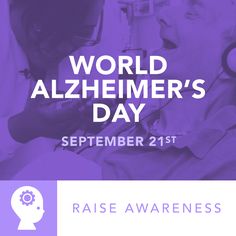Brain health is important too!

How’s your health? Have you thought about it lately? Remember to mind your mind.
You’ve probably thought about what you can do to stay physically healthy. But what about your brain health? Have you given it much thought?
If you haven’t, then now is the time to start. Even though you may feel perfectly healthy now, the changes that lead to dementia could already be occurring in your brain.
Australia’s population is ageing, and with it the prevalence of dementia is increasing. Dementia is a general term for more than 100 conditions causing progressive deterioration in thinking, memory and everyday abilities. Alzheimer’s disease is the most common cause of dementia.
The biggest risk factors for developing dementia are things you can’t change – getting older and your genes. While it is more common as people age, dementia is not a normal part of ageing. In fact, evidence suggests dementia develops in the brain decades before diagnosis.
But there is hope.
While dementia cannot yet be cured or prevented, research has identified a number of lifestyle and health factors that may help people reduce their risk of developing dementia and may even delay the onset.
Disappointingly, despite this evidence, dementia risk reduction still isn’t a focus of government public health programs. And not surprisingly, a number of Australians are not aware that it’s possible to reduce the risk of dementia. Consumer research indicates that 48%, of Australian adults are not aware that they may be able to reduce their risk of dementia.
While dementia cannot yet be cured or prevented, research has identified a number of lifestyle and health factors that may help people reduce their risk of developing dementia and may even delay the onset.
Disappointingly, despite this evidence, dementia risk reduction still isn’t a focus of government public health programs. And not surprisingly, a number of Australians are not aware that it’s possible to reduce the risk of dementia. Consumer research indicates that 48%, of Australian adults are not aware that they may be able to reduce their risk of dementia.
Even more disappointing are results that indicate that even if consumers think it’s possible to reduce dementia risk, they don’t know all of the factors that can help. A recent consumer awareness survey indicated that of the people who did think it was possible to reduce dementia risk, less than 4% were able to suggest reducing or quitting smoking, reducing/controlling blood pressure or reducing high cholesterol would be a good idea.
To help increase awareness about dementia risk reduction and inform people about the factors that can help, Alzheimer’s Australia, the country’s peak body providing support services and education for people living with dementia, developed the Mind your Mind program.
The key messages from the Mind your Mind program are:
- Mind your Brain – Keep your brain active
- Mind your Diet – Eat healthily
- Mind your Body – Be physically active
- Mind your Health Checks – Manage blood pressure, blood cholesterol, blood sugar and weight
- Mind your Social Life – Participate in social activities
- Mind your Habits – Avoid tobacco smoke, drink alcohol in moderation and manage sleep problems
- Mind your Head – Protect your head from serious injury
Adopting the Mind your Mind messages isn’t a guarantee against developing dementia, but it may help reduce risk and or delay onset of dementia. And of course, the bonus is that all of the Mind your Mind messages are beneficial for overall health.
So think about how you can lead a brain healthy lifestyle – start today and keep on going!
Glenn Rees is the CEO of Alzheimer’s Australia. For more information please visite their website at http://www.alzheimers.org.au/ or contact the National Dementia Helpline on 1800 100 500.












foggy
July 9, 2009 at 6:22 pm
thinking of “brains”
Healthy——in a healthy body. Brain is taken so much for granted! yes it is need of the times now that somebody oughta "mind "the health of the brain!
Ken2009
February 6, 2011 at 2:16 pm
New Brain Book
There is a just published book on the brain, apparently the first written from a functional neurology perspective. It is easy to read, has some humour and is filled with simple things that we all can do to improve neuro function. The book is titled "Your Brain Your Life" and more information is available on http://yourbrainyourlife.com